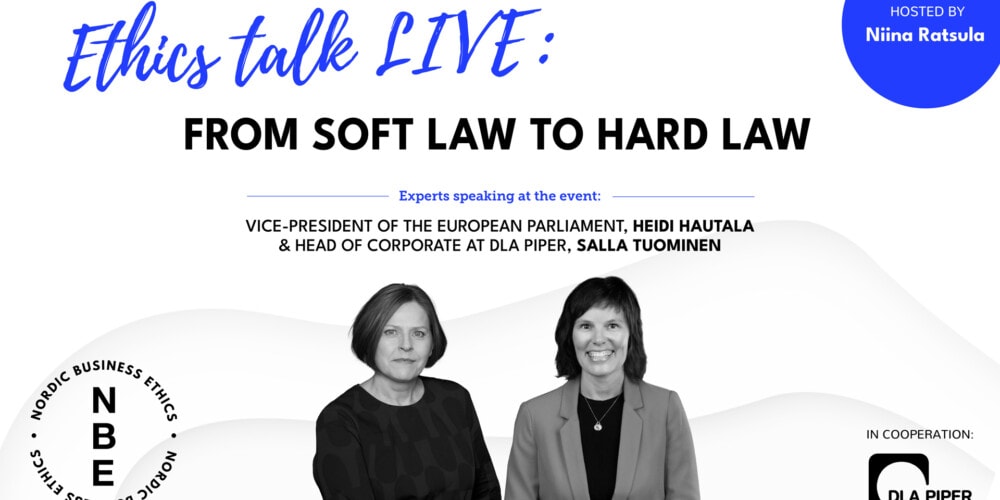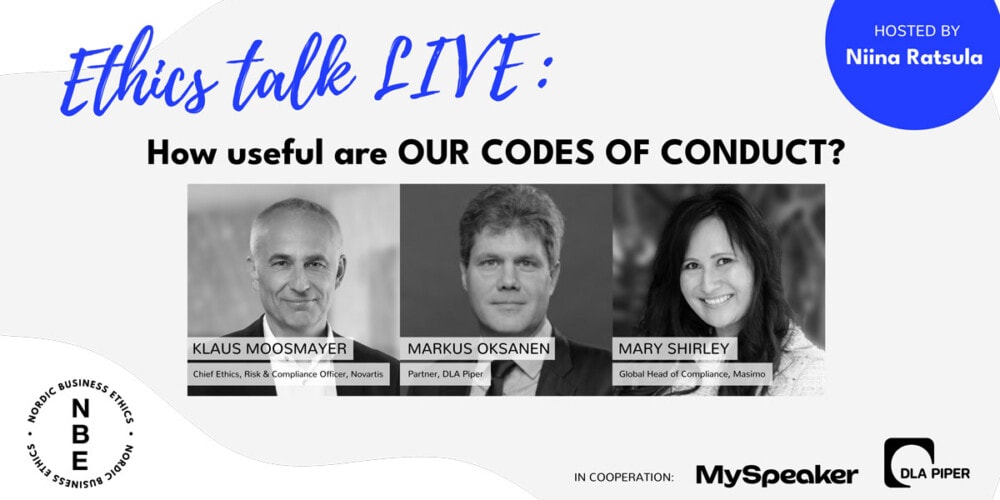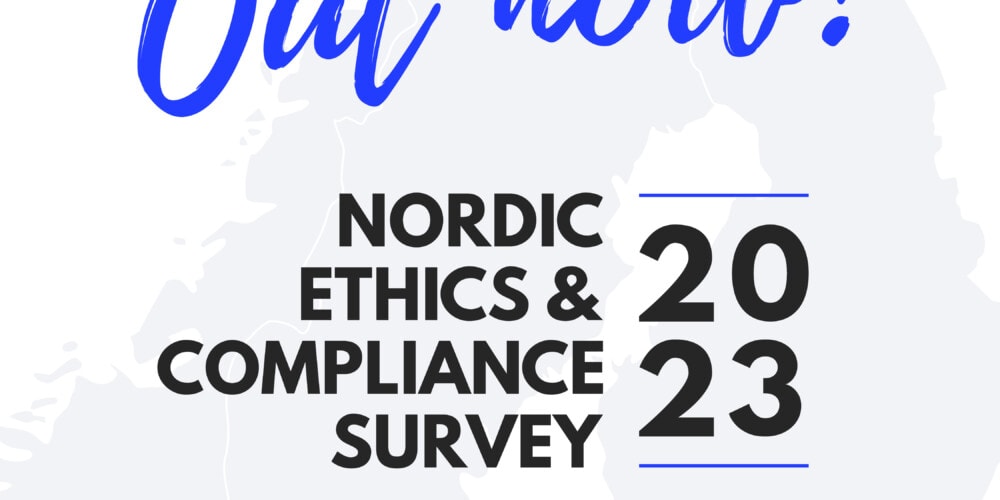EthicsTalk LIVE: Are we prepared for an increase in whistleblowing reports?
Whistleblowing is a “loaded theme”. There has been a lot of discussions and seminars on the Whistleblowing directive and we may think that we are “done discussing”. But we think that the discussion has not even started. Our NBE data indicates that employees are much more prone to speak up than 2-3 years ago. The shift is pretty dramatic especially relating to younger employees. Whistleblowing has come a long way and in many ways fundamentally changed already. Due to the recent regulatory changes, much focus is placed on the technical execution rather than what they are actually there for – the important thing is not the reporting channels, but how the reports are managed and whether they lead to actual changes in corporate behavior.
Michaela Ahlberg, Jennie Nilsson and Karin Henriksson took part in our EthicsTalk LIVE whistleblowing episode. This blogpost highlights the main points of the conversation. More details about the experts on our event page.
Whistleblowing is caring
Even though the new whistlelowing directive is not bullet-proof it applies to a much wider range of organisations and provides more protection to the whistleblowers. Jennie points out that organisations and employees are much more aware of whistleblowing due to the regulatory changes and the attention that these have received. Michaela mentions that back in the day politicians and organisations were almost repelled by the idea of whistleblowing, but have slowly understood that the alternative is even worse. When disgruntled employees are not heard internally, the only option they are left with, is to go to the media and unfortunately nothing sells better than a scandal. Michaela continues that even though organisations still have a lot to learn about the subject, whistleblowing processes are generally welcomed and organisations are starting to grasp that “fixing your own problems is maybe not such a bad idea after all.” Matured organisations see whistleblowing as caring and are interested in the information that whistleblowers have and actually commend those, who care enough to report issues.
Are anonymity, confidentiality and privacy making matters worse or better?
Much discussion is also on the anonymity aspect of whistleblowing channels. There has even been a time when anonymous reporting was forbidden by law in some EU states. The new whistleblowing directive does not require organisations to have an anonymous reporting option, only that it is confidential. In Karin’s opinion many whistleblowers are not willing to report their knowledge and suspicions unless it can be done anonymously -regardless of the increased protection.
“Anonymity is fundamental for effective whistleblowing.”
Karin Henriksson
However, only when combined with a good investigation. Then organisations do not end up accusing someone who has not done anything wrong, Karin finishes.
Jennie mentions that expectations on privacy laws in Sweden may not be fully aligned with the expectations on whistleblowing and internal investigations. Since, in Sweden, there is a general prohibition to process personal data relating to criminal convictions and offences for private businesses. This means that any reports that do not qualify as reportable matters under the Whistleblowing Act, but involve processing of such personal data cannot be lawfully processed without a permit from the Swedish Authority for Privacy Protection. This is however not a new situation, and many organisations had such permits already before the GDPR entered into force. It may, however be challenging for smaller companies as well as somewhat counter-intuitive as it can create problems for companies trying to “do the right thing”.
She also continues that the right to access your personal data under the GDPR is not the same as an absolute right for an individual to receive full documentation containing its personal data. Jennie also mentions that in Sweden, there are some limited possibilities to limit the right to access, i.a. by taking into account the rights of others and where the personal data would have been subject to secrecy, had it been held by an authority. She states that it is a complex question and limiting the right to access requires a thorough analysis. In practice, this may e.g. lead to that employees may not have the right to see the full documentation relating to a report and/or investigation relating to themselves.
Whistleblowing is an organisation’s failure
Michaela’s tip to all organisations is to move from speak up to listen up. If organisations were to listen better, they would notice the signs better. That way organisations could catch what is wrong before there is a need for whistleblowing. Hence, she believes that if an employee has no other option, than to report an issue through a whistleblowing hotline, they have been failed by the organisation. Karin fully agrees and states that “whistleblowing should be the last resort”.
Michaela lists investigations as the other key point. Without professional investigations capacity, there really is no point of having a whistleblowing channel. If organisations mess up the investigations, conclusions and remediation, employees and stakeholders will be discouraged from speaking up. Our NBE reports consistently show that one reason for not speaking up is the belief that “nothing happens anyway”. Good investigations are extremely hard, not to mention the resistance and friction that occurs undoubtedly when remediation and consequences are discussed. Despite their uncomfortability, they are wonderful learning opportunities.
Due to these aspects, it is important to resist our natural human tendency to dislike and not want to listen to a person, who has bad news. It is safe to say that the old saying “No news is bad news. Bad news is good news. And good news is no news” fully applies to whistleblowing.
If you want more of the same topic, make sure you watch the webinar recording from Nordic Business Ethics’ YouTube channel.



